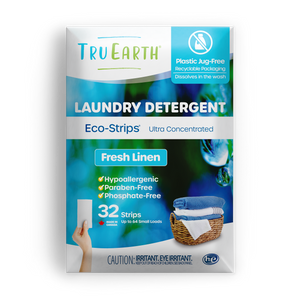In an increasingly conscious society, the concept of zero waste has gained significant traction. Zero waste is not just a goal; it's a lifestyle that challenges individuals and communities to rethink their consumption habits and minimize waste generation.
However, achieving zero waste can be challenging, and that's why we're here to explore the common challenges and innovative solutions on the steps towards a more sustainable future.

The Zero Waste Movement: An Overview
Defining Zero Waste
Zero waste is a philosophy that aims to send as little waste to landfills as possible. It emphasizes reducing, reusing, and recycling to minimize the environmental impact of our daily lives.
The ultimate goal is to divert 90% or more of waste away from landfills, incineration, and the environment. Achieving this requires a shift in mindset and practices.
Why Zero Waste Matters
The environmental benefits of zero waste are profound. It conserves resources, reduces pollution, and minimizes the need for new landfills or incinerators.
Additionally, zero waste can save money, promote sustainability, and inspire others to adopt eco-friendly practices.
The Biggest Zero Waste Challenges
Single-Use Culture
One of the biggest challenges is the prevalence of single-use products and packaging in our daily lives. Items like disposable plastic cutlery, straws, and packaging contribute significantly to waste.
Overcoming this challenge requires a shift towards reusable alternatives, such as bamboo utensils, stainless steel straws, and cloth bags.
Lack of Recycling Infrastructure
In some areas, limited access to recycling facilities and confusion about what can be recycled hinder waste reduction efforts.
Solutions involve advocating for improved recycling infrastructure and educating communities on proper recycling practices.
Food Waste
Food waste is a major contributor to landfill waste and greenhouse gas emissions. Discarded food not only represents wasted resources but also contributes to climate change.
Addressing food waste involves better meal planning, using leftovers creatively, and supporting initiatives that rescue surplus food for those in need.
Innovative Solutions
The Rise of Package-Free Stores
Package-free stores are emerging as a solution to reduce single-use packaging. Customers bring their own containers and fill them with products like grains, pasta, and household items.
These stores encourage consumers to embrace reusable containers and rethink their consumption habits.
Composting Programs
Composting diverts organic waste from landfills and transforms it into nutrient-rich soil. Many communities are implementing curbside composting programs to make composting more accessible.
Individuals can also compost at home, reducing their organic waste and enriching their gardens.
Circular Economy Models
Circular economy models prioritize the longevity and reusability of products. Instead of the traditional "take-make-dispose" approach, products are designed to be repaired, reused, or recycled.
This shift towards a circular economy reduces waste and conserves resources.
The Role of Technology
Zero Waste Apps
There is a growing selection of apps that help individuals reduce waste. These apps offer tips, track waste reduction progress, and provide information on local recycling options.
Embracing technology can empower individuals with tools to make sustainable choices.
Innovative Packaging Solutions
Companies are developing eco-friendly packaging options, such as biodegradable materials, reusable packaging, and minimalistic designs.
These innovations reduce the environmental impact of packaging and contribute to waste reduction.
Embracing Zero Waste as a Lifestyle
Educating and Inspiring
Raising awareness about the zero waste movement and its benefits is essential. Education can inspire individuals to take small steps towards waste reduction.
Sharing success stories and showcasing how individuals and communities have embraced zero waste practices can motivate others to do the same.
Collaboration and Advocacy
Achieving zero waste on a larger scale requires collaboration between individuals, businesses, and governments. Advocacy for policies that support waste reduction and sustainability is essential.
Joining or supporting organizations dedicated to zero waste goals can amplify efforts towards a waste-free culture.

Navigating the Zero Waste Landscape
The path to zero waste is undoubtedly challenging, but it really is worth the effort. By understanding the common challenges and exploring innovative solutions, we can work together to reduce waste, conserve resources, and protect our planet for future generations.
Zero waste isn't just a goal; it's a commitment to a sustainable lifestyle that benefits both the environment and our communities. Join the zero waste movement today and be part of the solution. Together, we can create a planet with less waste and more possibilities!


